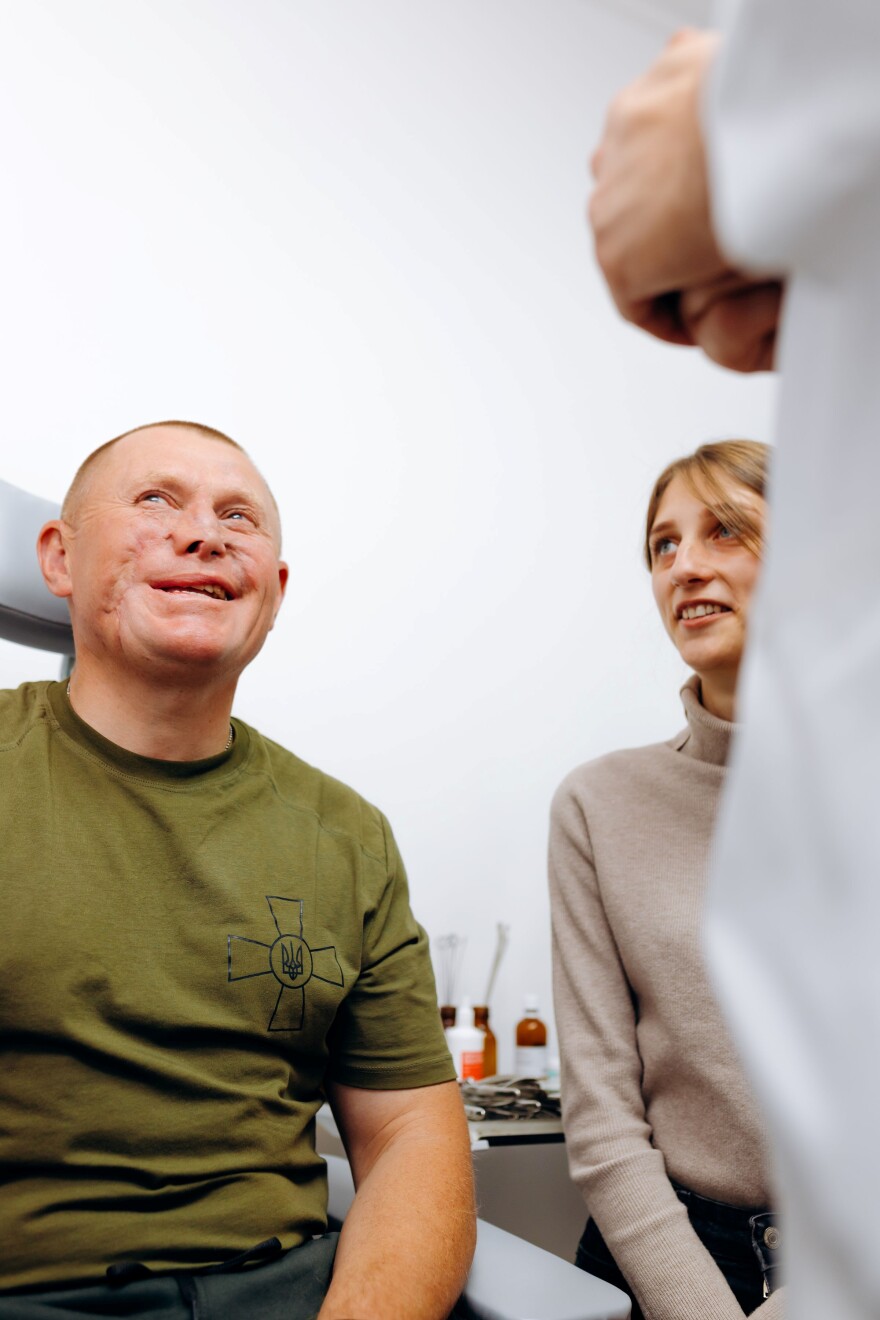The surgeries were some of the most complex Dr. Nataliya Biskup had ever done.
But that wasn’t the most difficult part of the Wichita doctor’s recent trip to Ukraine, where she helped operate on soldiers wounded in the country’s war with Russia.
“Actually seeing the physical repercussions of the war was very, very hard,” Biskup said. “It made the trip very emotional.”
Biskup, a plastic and reconstructive surgeon at the Hutchinson Clinic and Wesley Children’s Hospital, is Ukrainian-American. She was born in the western Ukrainian city of Lviv and emigrated to the U.S. with her family as a child.
When fighting broke out in Ukraine in 2014, she started thinking about how she could use her medical expertise to support her home country. That only intensified in 2022 when Russia launched a full-scale invasion of Ukraine.

“You always feel very helpless. You’re just one person in the face of this huge, cataclysmic event,” she said. “It really motivated me to want to go help.”
Biskup got involved with the Canadian organization Face the Future, which was planning its second medical mission trip to Ukraine.
In October, she and three of her staff flew from Wichita to Chicago where they then boarded a second plane to Warsaw, Poland. From there, they chartered a bus to take them over the border with Ukraine to the city of Ivano-Frankivsk.
The trip, which Biskup said would ordinarily take around five hours, ended up taking around 11 hours due to a holdup at the border.
Once they arrived at the local hospital, Biskup and a small group of other surgeons led an educational symposium for Ukrainian surgeons focused on treating complex war injuries to the head and neck.
Then, they began seeing patients. Before the trip, the team had reviewed dozens of cases of patients who had sustained major head and neck injuries during combat. Over the course of four days, they performed surgeries on more than 30 patients, working from early in the morning until late at night.
“There’s lots of blast injuries to the face,” Biskup said. “On top of bones being in the wrong place, there’s bones missing. There’s pieces of nose missing; pieces of lip missing.”
The soldiers came from across Ukraine. Most had had their wounds stabilized on the war’s frontlines but required more specialized care. Sometimes wounds had begun to heal incorrectly, further complicating treatment.
Biskup said the work was among the most technically challenging she’d encountered in her career so far — and among the most rewarding.
“[It] really pushed me as a surgeon to innovate and to be my best,” she said.
Biskup said one of her patients, Andrii Smolenskyi, was a young man who was a lawyer before he volunteered to join the military. Last spring, while fighting on the front lines, he was involved in a major explosion. He lost his vision and both of his arms.
While the surgeons couldn’t restore what he had lost, they were able to relieve some of the painful scarring on his face and fit him with ocular prostheses.

“It affected me very deeply,” Biskup said. “As a physician, my whole goal is to save life, make life better. It’s hard to see people do that to each other.”
Biskup said the man’s strength — both in battle and in persevering in the face of such life-altering injuries — will stay with her, as will that of all of the patients she saw.
“They’re just so tough; so resilient,” she said. “That was, to me, really a triumph of the human spirit.”
The work the doctors completed was primarily functional. Most of the patients were struggling with injuries that compromised their breathing or other essential functions. But, Biskup said, reconstructive surgery also tends to have cosmetic benefits — which itself can significantly improve someone’s quality of life.
“These guys have risked their lives. They’ve been separated from their families. And now they carry this terrible scar,” she said. “They just want to look normal.
“Appearance, in and of itself, has tremendous repercussions for self-esteem and functioning — so that, on top of the war and the PTSD and all the trauma they’ve experienced, that at least they can function normally in society.”
Biskup’s extended family living in Ukraine remains safe, but they’ve had some close calls. Her aunt lives across the street from a museum that, just a few weeks ago, was destroyed by a Russian missile.
Biskup is planning to return to Ukraine in February to perform pediatric reconstructive work on children with cleft lip and craniofacial anomalies.
Meanwhile, U.S. military aid to Ukraine is drying up. President Joe Biden recently urged Congress to approve more support, but it’s unclear when, or if, it will.
Biskup worries it’s emblematic of a growing sense of fatigue among Americans with the war, despite its impact on the Ukrainian people.
“I think their biggest concern is being forgotten,” she said. “My biggest hope is that people continue to remember Ukraine — and continue to show up for people that need help.”


